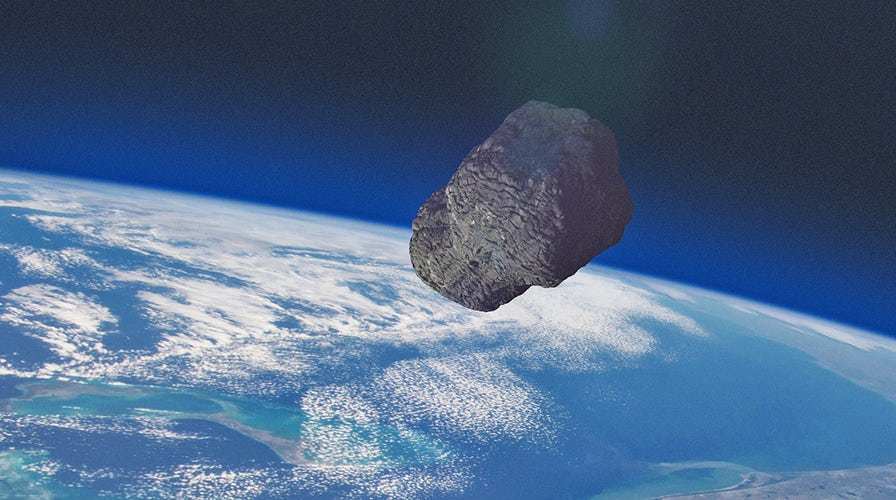Boom! Meteor explodes, causes fireball over central New York
Fox Nation host Abby Hornacek has the details of the rare event on 'Bill Hemmer Reports'
A fireball flashed through the night sky in New England on Sunday, releasing the energy of around 440 pounds of TNT.
NASA Meteor Watch reported on Monday that as residents witnessed the meteor streaking over Vermont and Massachusetts, the space rock "fragmented violently, producing a pressure wave that rattled buildings and generated the sound heard by those near the trajectory."
UK DOORBELL CAMERAS AND DASHCAMS CAPTURE METEOR ON VIDEO
Although the agency had initially believed the meteor -- which was likely a fragment of an asteroid -- to have been moving at a rate of 47,000 miles per hour when it appeared at around 5:38 p.m. ET, further analysis slowed that rate down to 42,000 miles per hour.
NASA Meteor Watch had first reported that the meteor was visible at a height of 52 miles above the Green Mountain State's Mount Mansfield State Forest and moving northeast as it traversed 33 miles through the upper atmosphere until it burned up 33 miles above Beach Hill.
"As the object ... penetrated deeper into the atmosphere, pressure built up on its front while a partial vacuum formed behind it. About 30 miles up, the pressure difference between front and back exceeded its structural strength," NASA Meteor Watch wrote.
Furthermore, the pressure wave experienced after its fragmentation could cause minor tremors and be detected by infrasound stations.
THE MOON HAS A TAIL THAT SENDS BEAMS ACROSS EARTH, RESEARCHERS SAY
"In the case of last night, we were obtained infrasound measurements from three nearby stations -- the amplitudes and durations of the signals put the energy of the fireball fragmentation at 440 pounds (200 kilograms) of TNT," the government organization wrote. "We can combine this energy with the speed to get a mass and size of the object -- 10 pounds (4.5 kilograms) and 6 inches (15 centimeters) in diameter."
More than 100 reports were made to the American Meteor Society from New Hampshire, Vermont, Massachusetts and Canada, according to WMUR.
In a video of the incident posted by Twitter user Jeremy LaClair, the fireball was captured on a webcam at Burlington International Airport, with other witnesses chiming in with their own accounts.
Even more people commented on NASA's post on Facebook and user Shannon Lemley-Willis wrote she had heard the "boom" in Johnson, Vermont.
"Kids were playing outside and described it as 'big trucks crashing,'" she wrote.
"I didn't get a video, but I definitely saw it in Watertown, MA. It was dusk, so the sky was fading to a deeper blue, and I saw a bright red, orange and yellow streak to the north of me," wrote Dan Nystedt. "I thought it must have been something much bigger than a standard 'shooting star' to be so visible when not totally dark yet."
A fireball is a meteor with a magnitude of brightness that's greater than -4, or the brightness of the planet Venus in the morning or night sky, according to the American Meteor Society.
CLICK HERE FOR THE FOX NEWS APP
Whereas, a meteor is the streak of light seen when an asteroid or meteoroid enter's the Earth's atmosphere, according to NASA. If an asteroid or meteoroid does not burn up before impact, it is called a meteorite.










































